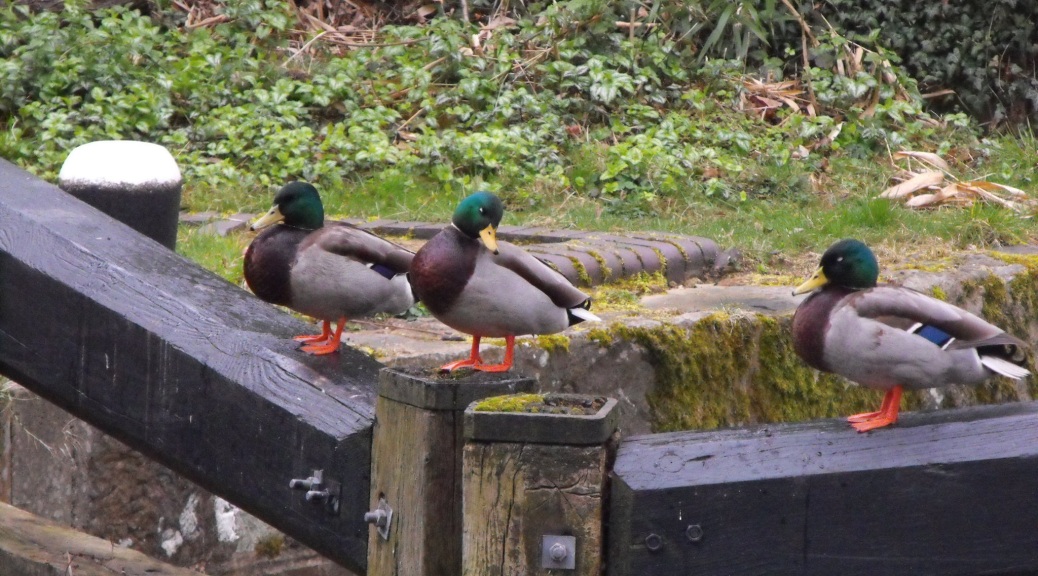While you read the following article why not listen to my e-baroque compositions – just click on the box below:
or if techno music is more your cup of tea here are my techno/ambient compositions:
I hope you find the information below interesting…please visit chrisduggleby.com again.
This week I came across an article in the alpine press which I felt touched a seasonal chord (literally) and illustrated that there are many wonders occurring in nature that we still do not fully understand. First of all take a look at the picture below which I took recently while looking for ferocious wild animals on Chapman’s Peak near Cape Town, South Africa.

In the middle of the picture is a pretty song bird which was singing its little heart out. The sound resonated across the mountain side.
Have you ever wondered how a bird learns to sing? A human child is not born singing but it usually learns how to sing from its mother, another sibling or perhaps a teacher at school. It would appear that a bird is taught how to sing by its mother while it is still inside its egg.
The Alpine article that explained this phenomenon can be found in the original German text here. The article quotes research carried by Sonia Kleindorfer’s research team in the Flinders University in Australian Adelaide.
The main subject of this research was the superb fairy-wren (Malurus cyaneus). One of the problems faced by these birds is that from time to time a cuckoo will come along and pop one of its own eggs into the wren’s nest. Wrens are not famous for their mathematical skills and so they often simply end up being a step mother to the baby cuckoos and feed them with bits of worm originally intended for the wren’s own offspring.
However, nature is not so dumb. The wrens have evolved a password system which enables the mother to identify its own offspring from the song they sing. The wren actually teaches the offspring this song while they are still in their eggs so that as soon as they hatch they can beg for food using the appropriate ‘password’ to make sure they get their fair share of the worms.
The researchers tested their ideas by moving eggs from one wren to another mother before they hatched to see whether the unborn chick learned the appropriate pin-code (or song) of the new surrogate mother. This trick worked – particularly among closely related wren species but it was not effective when cuckoo babies were involved. They conducted playback experiments in which they were able to demonstrate that adult wrens responded to the begging calls of offspring hatched in their own nest but responded less to calls of other wren or cuckoo nestlings.
So it would appear that the chirping that we hear from a nest of new-born chicks is in fact a sophisticated form of pre-hatch programming whereby the chicks are taught how to identify themselves to their parents and thereby get preferential treatment when it comes to dishing out the worms. Further research from the same team has indicted that the mothers in these nests also teach their partners to sing the correct identification songs to facilitate communal recognition within the family.
If you are interested in the original English Scientific Article which is published in Current Biology it can be found here.
Interestingly another article published in the USA (and refered to in the original german text here) has identified that birds get mentally stimulated when they hear pleasant bird songs in a similar way to how human brains react to pleasant music. The birds are using their songs as a form of mating signal and when an appropriate mate picks up on the signal (assuming they are sexually receptive) this has a similar effect on the bird brain to that experienced by humans when they hear romantic music. If you are interested in learning more you can read the article in Frontiers in Evolutionary Neuroscience which is published here. Acknowledgements to Sarah E. Earp and Donna L. Maney at the Department of Psychology, Emory University, Atlanta, GA, USA.
So do not underestimate those pleasant bird songs emanating from your garden. They are clearly part of a very sophisticated communication system that we are only just starting to understand.
Happy chirping,
Chris Duggleby.

If you are interested in other wildlife articles from Africa or the European Alps please take a look the following links:
6th October 2012: Blue, green or chocolate brown honey: Bee Obesity (“Obeesity”), M&Ms and a potential marketing challenge to Nutella in our children’s lunchboxes
1st September 2012: Multiple antibiotic resistance transfered between harmless soil bacteria and the killer pathogens found in hospitals
18th August 2012: Polar Bear dies of Encephalitis after catching Herpes from a Zebra in Wuppertal Zoo near Düsseldorf
11th August 2012: Do you have killer rats/mice in your cellar? Over 2000 people attacked in Germany so far this year (Hantavirus Infections at record levels)
4th August 2012: Alpine Cows are Fined 100 Euros by Judge for Ringing their Cow-bells too Loud (Steiermark Kuhglockenstraffe: die Kirchenglocken zunächst?)
4th August 2012: Should Horses be Forced to Wear Diapers to Keep Berlin Visitors’ Shoes free of Poo? (Pferdeäpfel Verursachen viel Dampf um Brandenburger Tor)
14th July 2012: Animal Emergencies and Horror Stories: Buzzards Attack Joggers, Horse Nearly Drowns in Poo, Ducklings Down the Drain
■Animals take over decorating the Christmas Tree and a special feature on amazing African wild flowers
■Looking for wild (and almost ferocious) animals near Chapmans Peak
■African wild animals and RISKKO discovers an African donut farm

